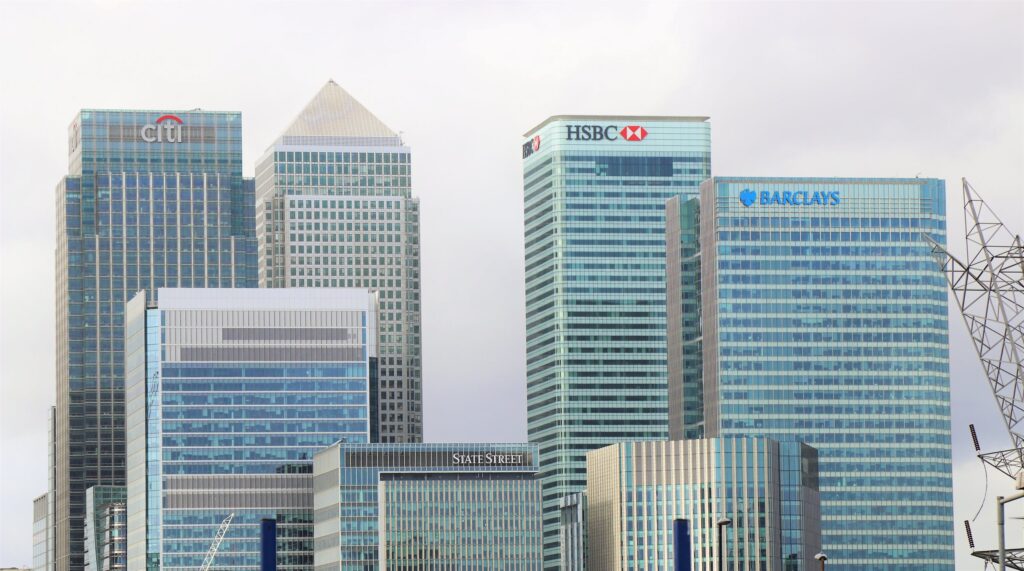Dear Friend
Well, this will be my last missive before a break. I do wish you a Happy Christmas – it will be different and for many of us it will be with strange and sad memories of what 2020 brought but we must not forget what Christmas means and what it celebrates too. Have a good time and a relaxing one as well if you can. Let us also close the year and look forward to a far better 2021 in so many ways, from health and the Covid19 reverberations to the financial markets and Brexit in the new world!
Perhaps this is an opportune time too to consider what ‘financial happiness’ is all about. I saw this in a publication recently and it summed-things-up well. It suggests it is not ‘how much money you have’ but ‘what you do with it’ or expect to do with it. ‘This suggests a level of ‘contentment’ which can resonate throughout our lives and recognising too that we are in charge of life decisions and their inevitable financial consequences. That is not trying to be harsh, discriminatory or cruel to those who find themselves in strained circumstances, nor those who have personal situations (including poor health or other disability) which are not of their making but impairing their ability to manage financially easily. However, we all no doubt know very well-heeled people who are totally miserable and very poor people who are very financially content.’
It is an interesting status upon which to ponder this Christmas time and as we enjoy time to reflect and also remember and consider those who need our help if we are in the position to do something to assist. For us, as financial advisers yes, we can help people to be happier in understanding their finances and also on basic financial planning, as well, hopefully, in relieving their concerns about being worried about what they should do to be good stewards of what they have (and perhaps what they spend too!). Some of that is actually having a trusted financial adviser and confidant of course. Technical, expert, administrative efficiency and indeed emotional factors all come to play regarding the relationships with our clients too. It’s about helping people make the right decisions and also trying to guide them from making perhaps the wrong decisions because of their emotional biases which can be very irrational and sometimes downright foolhardy.

Markets
The vaccine (and for the UK, Brexit) will dominate the shifts of sentiment for some time but a light at the end of a very long tunnel is fast approaching and it isn’t a train coming the other way. That’s good news but as the twenty-first anniversary of the peak of the Tech Bubble fast approaches (31 Dec 1999), we celebrate that by seeing the US market on its most expensive valuation on numerous criteria since then and way above the excesses which preceded the 1929 Wall Street Crash (curiously driven-up by some of the ‘same’ things, the ‘invisible opportunities’ expected from mains’ electricity, the white goods alongside that and the advent of radio). In context too, the US market is at twice its long-term average valuation base. Why is it that the cycles show that humankind becomes so caried-away with the values of things which cannot be seen, moreso than things which can be, like a lump of gold, which has its own tangible excesses? Airbnb, the online holidays’ business floats and instantly doubles its valuation to join the ranks of the post $100billion value companies, on the back of not even a single year’s profit yet and not the best backdrop for holiday companies. It raised more money last April when new subscribers valued the company at a mere $17billion but hey, what’s the odd $100billion between speculators with greed or stupidity in their eyes – or even the trillions in index-trackers who have to buy the stuff (when admitted to indices) just because it is there? Airbnb’s gain on its open was the biggest ever, since, yes, you’ve guessed, the Dotcom bubble (dominated by technology, telephony and media which then spoke for 40% of the value of all of the world’s stocks!) and followed on the heels of ‘Door dash Inc’ earlier in the week (who? You might ask.). The FTSE100 at one stage was represented by Vodafone speaking for 16% of it and it is no wonder today that index is still lower than it was then. Perhaps the canary is the news that Vanguard’s US ‘Total Stock Market Index Fund’ has just passed $1trillion, the first time any fund has reached seven figures. If (or when) the correction happens, it is a very long way down for many momentum investors.
Should mainstream investors be worried? Yes if you have buckets full of ‘tech’ and index-trackers which hold that stuff and the US market (theoretically ‘worth’ a phenomenal $41trillion now) dominated by it too. Curiously in 1999/2000, the FTSE250 (so the companies from 101-250 in market size) didn’t even flinch and ended the next year higher and without any blip in value at all. For the UK, with Brexit and the pent-up uncertainty, the same could happen again this time with ‘value’. The TMT heavy NASDAQ peaked similarly and by 31 March 2001, it had dropped by 40%. That could happen easily now – and maybe even more as so many tech companies are stratospherically inflated and supported by so much hot money that only likes it when things keep going up excessively. Interestingly too but perhaps the most respected and independent financial publication in the World, the Financial Times, is running more and more warnings about these excessive valuations – is anyone listening… we are and have been for some time. ‘Value’ on old-fashioned criteria could be in for a great resurgence so its future looks bright! Again, contextualising this, G4S shares fell to 70p in March. Yes, we have quite a few and that showed a big paper loss for us. However, the whole Company is being bid by corporate entities which know it is too cheap. The latest price on the market? £2.56 as two suitors are battling against one another. That’s almost four times higher than March and some fools were selling-out then. That may still be lower than the peak in 2017 but we chased them down as low as we could.

Pension Transfer
For the fortunate in deferred company schemes and who can transfer, values are obscene at the moment. We are just reviewing one for a lady who is entitled to draw her benefits in 2032. These ‘indexed’ benefits amount to a pension of just over £600 presently. So, bearing in mind that upon her death the payments would be just half to a widower if she has one but otherwise cease altogether and anything/everything ‘left’ benefits the scheme, as a financial adviser of thirty-five years’ standing I would need my head tested if say I had the same capital sum available today for her to buy such a ‘wonderful promise’. The High Street bank’s pension trustees would instead let her have a transfer value of £94,000 to relieve it of the liability – no wonder so many businesses with these sorts of legacies have been struggling or indeed closing-down.
So in a nutshell, she can walk away with a cheque of £94,000 and draw a quarter tax-free today or if she left the whole pot and even ‘threw it’ at say the FTSE All share index, the dividends are likely to start at about £2,700 (even after allowing for the Pandemic’s reactions and no-one would just put all their pot in equities like that anyway). The Regulator now drives the industry to recognise that transferring out is first and foremost ‘bad’. Yes, it is a future assured income foregone but at what price? Superannuation schemes stopped ‘investing’ money a long time ago and became simple ‘future liability pots’ . The only unknown is that at some point inflation and interest rates will rise and transfer values will plummet – who will keep the surpluses in the schemes then? It won’t be the individuals in the scheme…

Christmas Present
We have just been advised of the largest compensation payment through the Organic debacle yet – a maximum of £202,000 and tax-free in his hands. This was bad advice to transfer from a final salary scheme and then obviously the very shady and potentially fraudulent investments acquired by Organic. The individual concerned is ecstatic and fortunately by our direct assistance and our guidance away from the claims’ chasing parasites, as otherwise he would have lost up to £97,000 to them in commission for simply filling-in his claim particulars. No legal or complicated work was required contrary to what those charlatans try to suggest – the advisory firm was in default at the FSCS and the money simply awaiting him. A really happy Christmas Mr A! He now has a trustworthy independent financial adviser guiding him on his best interests and not someone else’s… our bill for formal engagement? About £500 for a series of claims.

Bitcoin
Well, the lunatics really are running the asylum now as certain investment groups have announced they are looking at this as an investment class. I am trying to think what analogy is relevant – maybe the same investment institutions which entrusted funds to Bernie Madoff to invest on the impressive ‘performance’ he reported? Seriously though, global regulators must grab hold of this – when it implodes many smaller investors will lose their shirts. They owe a responsibility too for an ‘orderly market’ in financial ‘products’ and this is not one of those. Would holders prefer that one day instead it is banned and becomes worth nil? You don’t even hold something at the end of the day to be able to make jewellery out of it either.

Consolidator Financial Adviser
We have just welcomed a new client. He had a very nice financial adviser before but whilst the website said that the Platform used was ‘independent’ the firm itself was ‘restricted’ and effectively the firm stuffed every client onto the one platform, with one of the big companies. I am sorry but that is disingenuous and misleading and on this platform there were no Investment Trusts, no direct shares, no anything but a portfolio of collective unitised holdings which everyone else had in the same models.
The original advice noted that the client wanted a more dynamic investment adviser who’d report to him and so on but this one didn’t do anything at all as once the platform was sold to him for his £200,000, that was it. So, a rich introductory fee for assimilating perfectly acceptable pension plans with other companies (which also had platforms which could have been used and thus saving fees by staying inhouse) and taking a 0.75%pa fee from this new pot (a mere £1500pa!) and for what? All that had happened so far it seems is that the adviser sent-on the specimen automated investment report every six months with not even an individualised letter. I mean, come on – that is an abuse but it makes me realise we are dramatically undercharging as we provide our advisory services without any extra charges at all. All that said, it seems this client isn’t enamoured either so the fees to the old adviser are destined to stop and the client will have a far superior and truly independent investment management arrangement which cost him no subscription fee to access either.

Fortune Then Famine
I was very interested to see what Nigel Farage’s new way of earning a bob or two for himself was going to be. I am not very impressed so far. So it’s not a regulated arrangement (would that have been so hard to do first, even as a publication?) so it is ‘guidance’ like a dodgy tip-sheet – and not advice. There’s no personal advice and it is all based upon receiving newsletters and so on and paying £199 a year for the privilege, with discounted early offers. They call it ‘a low, flat annual fee’. The first one suggests three investment types – commercial property Real Estate Investment Trusts, Gold and then three direct share offers. Hands-up those who think having all your money in those three is a balanced portfolio! Various ‘testimonies’ and ‘experience statements’ were shared but the way they were written, they were not all (any?) from ‘real people’ – we deal with ‘real people’ and they don’t say the sort of things repeated in their one hour sales’ presentation. Shucks – it makes me wonder – should I be charging £199pa for my eshots which we provide for free and especially with all that financial advice and guidance we give?
I am sorry to say but please – take good investment advice now – save your £79, £199 or whatever. And remember, all good independent financial advisers will give you at least an initial consultation for free and many mugs like us do so much more for free too – as our readership and clientele going-back over thirty-five years will know and attest. I am afraid I don’t give this new tip sheet much hope for a very successful future…

Lifestyle Fund
More and more investors will have ‘lifestyle funds’ for their pensions, etc as generic and cheap ways to pigeon-hole investors in collective schemes. It might all sound very well but all too often the underlying investors don’t realise what they have till too late. For example, we were looking at Aegon’s ‘Retire Ready Fund’ and in June it held 46% in cash earning ‘nothing’ and 24.7% was in US shares! Only 8.1% was in British shares despite the owner receiving his income and paying his bills in Pounds (and the same in retirement). Aegon is the inhouse firm used for Nationwide’s sales’ force too you may realise. I mean, in June when things were so cheap, who wanted almost half their managed investments in cash and another quarter in the most overblown market in the World ostensibly?

Lloyds Banking And Schroder
What is going-on there… to much fanfare the two announce a grand alliance as Schroders Wealth takes-on Lloyds’ investment clients and a big recruitment drive, a new chief executive lasting eight months then a staff redundancy programme… I said once before, I think the Bank needs to work on its share price first before it starts telling others how good it is at investment management of their money I suppose! We’re doing our bit – we’re holders of Lloyds’ shares but they are still too cheap – as is the sector generally. Indeed, following that, the Prudential Regulation Authority has confirmed that banks can resume sensible levels of dividends to shareholders. This is after the hiatus in view of the Pandemic. I sense this will see bank share prices begin to return to more realistic levels than the paltry sums they have seen over 2020. We shall be well-positioned to benefit!
Risk Warning
Stock market investments can offer income through the payment of dividends and interest and good opportunities for capital appreciation over the longer term. By this, generally we mean periods in excess of five years, preferably much longer. However, we can never promise you particular returns, especially in the short-term. At any point in time but especially in the short term, your capital could be worth less than the original amount invested as some of the selected holdings may fall in value, regardless of expectations at the time of acquisition. We may also invest in funds that hold overseas securities. The value of these investments may increase or decrease as a result of changes in currency exchange rates. Returns achieved in the past cannot be relied upon to be repeated.
To remind you, why do I send out occasional emails? Because everyone can save money. We have no connection with any companies mentioned and you have to make your own contacts and satisfy your own enquiries. What is in it for us? If we can prove that we are knowledgeable and that our service and advice have good value, then you might contact us for professional financial planning and investment help. You don’t have to do that though and there’s no charge for emails. If simply they save you money, then accept them with our compliments! However, you’ll know where we are!
If you have any queries of any form or indeed any subjects you think I could include, please contact me. I also refer you to our website www.miltonpj.net. We celebrate our 35th anniversary in 2020 and have been publishing a well-respected independent column in the local Paper for most of that time and free client newsletters as well.
Do not forget however the usual caveats – this is not ‘advice’ and you are encouraged to seek that before embarking upon any financial route involving investments, etc.
My best wishes
Philip J Milton DipFS CFPCM Chartered MCSI FPFS FCIB
Chartered Wealth Manager
Fellow Of The Personal Finance Society, Fellow Of The Chartered Institute Of Bankers





